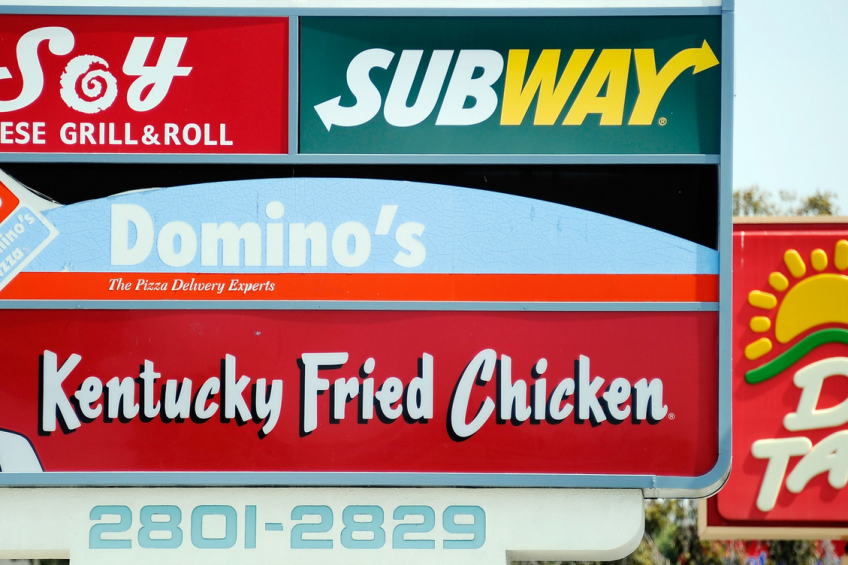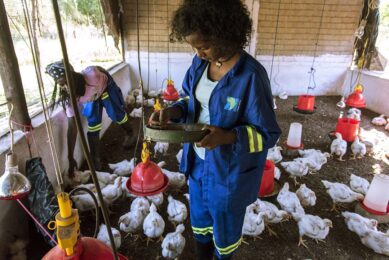Antibiotic policies of US fast-food chicken rated

Since last year, twice as many of the US’s top fast-food chains are adopting strong policies that prohibit the routine use of antibiotics, or medically important antibiotics, in the meat and poultry they serve, according to the second annual Chain Reaction report and scorecard.
The report, Chain Reaction II: How Top Restaurants Rate on Reducing Use of Antibiotics in Their Meat Supply, released by a group of consumer, environmental, and health organisations grades America’s top 25 restaurant chains on their policies and practices regarding antibiotics use and transparency in their meat and poultry supply chains.
The 9 chains earning passing grades are Panera Bread (PNRA), Chipotle Mexican Grill (CMG), Subway, Chick-fil-A, McDonald’s (MCD), Wendy’s (WEN), Taco Bell (YUM), Pizza Hut (YUM), and Papa John’s Pizza (PZZA).
Consumer-led changes in antibiotic policies
A public outcry from consumers and shareholders has been urging chains like KFC, Olive Garden, and In N Out Burger to follow suit and adopt policies prohibiting the routine use of antibiotics in the meat and poultry they serve.
Chain Reaction II highlights include:
- Panera and Chipotle continue to lead the pack with solid “A” grades for implementing comprehensive policies that restrict antibiotics use across their meat and poultry supply.
- 9 of the surveyed companies—twice as many as last year—received passing grades, largely due to their transition to chicken raised without antibiotics or chicken raised without medically important antibiotics.
- The restaurant chains surveyed this year made little progress on beef or pork.
- 5 companies with strong chicken policies received grades ranging from “B” to “C-” (Subway, Chick-fil-A, McDonald’s, Wendy’s, and Taco Bell.)
- McDonald’s earned an improved grade of “C+” this year, after completing its 2015 commitment to end the use of medically important antibiotics in its domestic chicken supply—with 100% of the chicken at its 14,000 US locations meeting this standard. But the company has yet to take action on beef or pork.
- Subway improved the most, leaping from an “F” in 2015 to a “B” in 2016. Last fall, under pressure from the coalition and consumers, the chain committed to ending the use of antibiotics across its entire meat and poultry supply by 2025. Very few other chains – and none at this scale – have taken such a strong stance. Implementation of new policies for chicken began this year but not for turkey, pork, or beef.
- Dunkin’ Donuts was the only company to be downgraded to an “F” this year after weakening its publicly stated antibiotics policy.
- The following chains also received an “F,” either for having no disclosed antibiotics use policy or for having policies that allow for the continued routine use of antibiotics in the production of the meat and poultry they serve: Applebee’s, Arby’s, Buffalo Wild Wings, Burger King, Chili’s, Dairy Queen, Denny’s, Domino’s, Dunkin’ Donuts, IHOP, Jack in the Box, KFC, Little Caesars, Olive Garden, Sonic, and Starbucks.

Research for the Chain Reaction II report, was compiled by the Natural Resources Defense Council, Food Animal Concerns Trust, Friends of the Earth, Consumers Union, and Center for Food Safety.
“Positive signs of change”
“This year’s scorecard shows positive signs of change in the fast-food industry,” said Sasha Stashwick, senior advocate for Food & Agriculture program at the Natural Resources Defense Council (NRDC). “But amid the steady drumbeat of company after company acting to end routine antibiotics use in their chicken supplies, chicken giant KFC now stands out as a major laggard. Despite receiving a call to action last month from over 350,000 concerned consumers, the company is still failing to do its part to protect people from superbugs.”
“Antibiotic-resistant infections already cause more than 23,000 deaths and up to $55 billion in costs each year and antibiotic misuse in animal agriculture threatens to drive these numbers even higher,” said Steven Roach, food-safety program director of Food Animal Concerns Trust. “Even the CDC agrees that with the recent discovery of the latest colistin-resistant superbug, the end of the road for antibiotics is not far.”
“Protect against misuse of vital drugs”
“The future effectiveness of antibiotics depends on making sure they are used only when necessary,” said Jean Halloran, director of food policy initiatives at Consumers Union, the advocacy arm of Consumer Reports. “By the end of 2016, Subway will join McDonald’s, Chipotle, and Panera in serving chicken raised without wasting these critical medications. It’s time for all fast-food restaurants to do their part to protect public health by no longer serving meat and poultry from suppliers who misuse these vital drugs.”
“This year’s progress is encouraging, but companies and consumers can only move the dial so far – it is time for the US government to step up and mandate reductions in antibiotic use for the industry writ large. Without strong, enforceable regulations for antibiotic use in place, there is undue burden on the public to hold companies to their commitments and to pressure the laggards in the industry to stop dragging their feet,” said Cameron Harsh, senior manager for organic and animal policy at the Center for Food Safety.
Join 31,000+ subscribers
Subscribe to our newsletter to stay updated about all the need-to-know content in the poultry sector, three times a week. Beheer
Beheer








 WP Admin
WP Admin  Bewerk bericht
Bewerk bericht